- Home
- Tony Parsons
Silver in the Sun Page 9
Silver in the Sun Read online
Page 9
Ian marvelled at the contrasts in the man walking beside him: a celebrated writer and poet who killed dingoes one day and studied birds the next. Yet he felt comfortable with Leigh, and found himself confiding that he found western Queensland a very different place to England. ‘I’m not sure I’ll ever come to terms with this part of the world,’ he said.
‘Of course you’d find it different. But how do you think the first settlers from Britain found it when they arrived? The indigenous population were hunters and gatherers. The landscape and the vegetation were like nothing the white men had ever seen in their lives. And the weather could change from devastating drought to raging floods virtually overnight!’ Leigh said. ‘Don’t sell this country short,’ he continued. ‘Sure, you can’t run the stock per acre that you can in Britain, but we’ve produced our share of wealth. And a lot of it is very sweet stock country. It’s an amazing place. You’d think there was very little life along these western rivers, but when the big rains come, all that changes. A river can be almost dry – maybe only a string of muddy waterholes – but after the rains, life reappears as if by magic. First the water fleas, yabbies and frogs, and then the water birds in their thousands. I tell you, it’s just amazing.’
By this time they had reached the house and Leigh asked how steak, onions and a piece of damper would go down.
‘It would go down very well,’ Ian said. He’d spent a couple of hours walking the paddocks that morning and was hungry as a horse.
‘Right. It won’t take long to burn a bit o’ steak. What do you fancy to drink? Tea do?’
‘Tea will do fine,’ Ian said.
‘It’ll be tea with condensed milk because I don’t see much bottled milk here. It’s a bit early for the other stuff. What’s your usual there?’ Leigh asked.
‘I usually stick to orange juice, but I don’t mind a beer at the end of a long, hot day,’ Ian said.
‘You won’t get into too much trouble if you stick to that regime. Of course, it depends if you can stick to one,’ Leigh said with a grin.
They sat at the big table on the verandah and watched the river while they ate their simple but very tasty lunch. Shelley sat at the top of the steps and surveyed everything. Leigh noticed that Ian was watching the dog.
‘He’s keeping nit,’ Leigh said, nodding towards Shelley.
Ian looked puzzled.
‘“Keeping nit” actually means watching for the police when something is going on that shouldn’t be. Like two-up – that’s a gambling game you play with coins and it’s illegal except on Anzac Day. So, to play it on any other day, one fellow has to keep nit,’ Leigh explained. ‘It’s an old-fashioned saying now, but you’ll still hear it now and again.’
‘I see. I’m not up to speed with all the Aussie sayings,’ Ian apologised, ‘but I’ve heard a lot in the past year.’
‘Not to worry. You’ll get there. A lot of it isn’t fair dinkum Australian anyway. Not any more. The American influence is very strong – “guys” instead of “blokes” and that sort of thing. What say we take the boat and go for a cruise upriver? We might get a fish or two,’ Leigh said.
‘Sounds great. How far would we go?’ Ian asked, torn between wanting to spend more time with Leigh and needing to get back to his studies.
‘Oh, just a few miles. We might see something interesting – there’s a lot of wildlife out there. I put the electric motor on the tinny this morning. It’s quieter than the six-horse fuel job,’ Leigh explained.
‘Does Shelley go with you?’ Ian asked.
‘Bloody oath, he goes. He sits in the front and if he sees anything he doesn’t like, he growls,’ Leigh said.
‘What doesn’t he like, apart from dingoes?’ Ian asked.
‘Just about everything on four legs or two, except sheep. He doesn’t mind sheep. He doesn’t like roos and he doesn’t like emus and he hates pigs almost as much as he hates dingoes,’ Leigh explained.
Ian decided he could do with seeing a bit of the river, and they wandered down to the tinny, Leigh carrying handlines, some raw meat to catch bait, a bottle of water and two small cushions. ‘The seats get a bit hard on your backside after a while,’ he said.
‘And here’s me thinking you were a tough-as-nails bushie!’ Ian laughed.
‘I like a bit of comfort when I can get it. No need to suffer unnecessarily.’
The tinny’s engine purred to life and they moved effortlessly into midstream. The river here was almost as wide as the long stretch near Murrawee, though it could hardly be called a large river. After a few minutes Leigh ran the tinny in beside a bank and tied it to a dead log. ‘Time to get some bait,’ he said. He tied some pieces of the raw meat to a couple of lengths of green cord, handed one to Ian and dropped the other into the water. ‘If you feel something at the meat, pull the line up slowly and we’ll see what you’ve got,’ he said.
Inside ten minutes Leigh had three yabbies in a billy, but try as he might, Ian couldn’t get one into the boat. ‘Not to worry,’ Leigh said. We’ll have a go with what we’ve got. Here, I’ll bait a line for you.’ Then, ‘Hang on, while we’re here I’ll see what’s under the bark of that old red gum.’
Leigh jumped out onto the bank and proceeded to examine what lay beneath some loose strips of bark on the massive trunk of the ancient tree. He returned to the boat with two grubs in his clenched fist. ‘Funny fish, these freshwater blokes. Sometimes they’ll bite on just about anything and sometimes they won’t bite at all. But grubs will often do the trick.’
They pushed off again and cruised along the gum-lined river. ‘No wonder the Aborigines stuck to these rivers. Shade from the heat and plenty of ducks and fish. Look, there’s a mob of woodies,’ said Leigh, pointing ahead to where a small flock of subtly coloured, pale brown ducks floated on the river. Suddenly, the flock took off noisily like a squadron of planes.
‘Nothing like a bit of water, is there,’ offered Leigh. ‘Water conservation is just about the number-one priority for Queensland – except that the dopey politicians lack the vision to realise it. There’s more votes in building sports stadiums in the capital cities. But there’ll be a day of reckoning, you can depend on it. With the dry years we’re getting now, and more and more people moving here, water is going to become our most precious commodity.’
‘I guess the English don’t realise how lucky they are,’ said Ian. ‘A lot of Cambridgeshire used to be covered by water.’
‘Yeah, fen country. It’s been drained for agriculture now, hasn’t it?’ Leigh asked.
‘That’s right,’ said a surprised Ian. Most of the people he’d met in Australia hadn’t known a lot about Cambridgeshire.
‘I’ve been there. Been to Cambridge Uni. And seen a lot of those lovely little villages,’ Leigh said.
‘You didn’t tell me that,’ Ian said.
‘Yeah, well. You don’t spill all your beans first-up. I’ll bet Murrawee was a shock to your system after those Cambridgeshire villages. I reckon it would have gone down like a lead balloon, eh?’
‘It’s not a very lively place, that’s for sure. But do you think it has to be as dead as it is? I mean, surely there are things that could be done to make it more attractive. Tourism is a big thing in Australia these days, but travellers must bypass Murrawee because there’s nothing to see. How can you hope to keep young people in the bush when there’s no entertainment for hundreds of miles? No wonder the small country townships are slowly dying,’ Ian said.
‘There’s a store, a pub and a garage and a big campdraft once a year. That’s enough for most people,’ Leigh said.
‘I’ve asked a few locals how they find it living here. It must be pretty dull for the Landers, with a young son. Fiona McDonald said that there’s nothing going on except parties and the occasional B & S ball at the bigger towns – and they don’t appeal to everyone,’ Ian said.
‘Ah, talked to Fiona, did you? Now there’s a catch. Have much experience in the crumpet department?’ Leigh asked in one of
his frequent and unexpected changes of subject.
‘The what?’
‘Women,’ Leigh said.
Ian paused, ‘Not much.’
Leigh raised his eyebrows.
‘I suppose I’ve never met the right girl. Actually, to be honest I’ve never really met any girls,’ Ian said quickly.
‘A bloke in your position could have girls galore. All young and willing, too,’ Leigh said with a smirk.
‘And all wanting to be the mistress of Kanimbla, I guess,’ Ian said. ‘No, I’ll wait until I’m ready. And when I do decide to get married, I’ll be looking for a very special woman.’
Leigh clearly wasn’t going to give up. ‘I can put you in touch with a couple of women who just like the sex – you don’t have to marry them. They’d be falling over each other to get to you. It’d be like all your Christmases had come at once,’ Leigh smiled.
‘Thanks, but no thanks, Leigh. I don’t have time for a relationship.’
‘But how do you manage not to think about women?’
‘Oh it’s not too hard, I just think about something else. My grandfather told me he used to do things like memorising the names of all the men in his company or all the officers in the battalion,’ Ian said.
‘A real pukka sahib, was he?’ Leigh asked.
‘I suppose so. He had a set of standards he lived by all his life. Loyalty to one’s country and one’s friends was at the top of the list. And not doing anything he would be ashamed of was a large part of that.’
Watching the river drift by, Ian became lost in his thoughts. He was feeling a little guilty. He hadn’t been entirely honest with Leigh about girls. Or, more specifically, about one girl … It was certainly true that he hadn’t had anything to do with girls, and that he hadn’t thought much about them either. But Fiona McDonald had changed all that. She was not only the first young woman he had talked to at some length, but also the most attractive. She had a very warm personality that endeared her to just about everyone she met. Leo told him that there’d never been any question that she would be school captain, as she was regarded as the most outstanding student of her final year. And Ian simply enjoyed her company. She wasn’t worldly wise – apart from her school excursions, she’d seldom been away from Nelanji – but she was a naturally inquisitive and intelligent young woman, and could give an opinion if asked for it. Ian felt very relieved at having Fiona so close to Kanimbla and hoped they would become great friends.
Ian’s thoughts were interrupted by Leigh, who apparently had a fish on his line.
‘Woo-hoo!’ Leigh exclaimed as he hauled in a seven kilogram Murray cod. ‘This one’s a beauty. Can you blame a bloke for wanting to live here? I’ve got the river at my door, I can fish when I like and there’s birdlife galore. There are no traffic lights or traffic jams to concern me. I’ve got space to write and if a woman wants a bit of fun I can accommodate her without having to worry about a nosy neighbour.’
‘How well you paint the picture,’ Ian said with a laugh. ‘I must say, it’s been an interesting day and we haven’t once mentioned Shelley or Lawson! But I’m afraid you’d better point this craft back towards your Shangri-la. I’ve got some planning to do – I’m to give a party at the homestead. Not my idea of fun, but it’s expected, apparently.’
‘I assume you mean for the grazier types, not the hoi polloi?’ Leigh grinned.
‘I suppose so,’ Ian returned the smile.
‘You’d better not invite Rhona Blake – she can upset a party in two sentences. For starters, she thinks most of Queensland’s politicians are second-rate and that the National Party crew are at the bottom of the pile. As all your guests would vote National Party, you can imagine how well her views would be received!’
‘We’ll cross that bridge if we come to it,’ Ian said. ‘It’s been a great day, Leigh. Thanks.’
‘Don’t forget what I told you. If you feel you need a bit of fun …’ Leigh trailed off, with a twinkle in his eye.
‘Are you going to clean that fish?’ Ian changed the subject.
‘Course I am. I’ll split it down the middle. Mrs H knows how to cook the buggers,’ Leigh said.
After a delicious fish dinner and before retiring that night, Ian added to the diary he’d been keeping since arriving in Australia. He wrote some of the lines of poetry Leigh had shared during their long conversation:
Oven-hot the sun beats down,
Through silver leaves of silver trees.
The red earth gasps in muted shade,
Bereft of the faintest breeze.
Oh, will the daylight never fade
So we can dream of crystal streams
Before new day invades our dreams?
One day, Ian hoped to turn the diary into a book. He would call it ‘Sojourn in Australia’, or perhaps he’d substitute ‘Oz’ for Australia. Leigh would certainly appear conspicuously in it. He was, without a doubt, the most unusual character Ian had ever met and he felt fortunate to be the employer of such a man. He wondered what the reaction would be if he invited Leigh to his party. It was the kind of thing you wouldn’t hesitate to do if giving a party for the literati, but in western Queensland, it was a different matter. A pity. If Leigh were there, the conversation would certainly extend way beyond sheep and cattle and the weather. And if both Leigh and the formidable Rhona Blake were in attendance, that really would be a situation. Ian wondered what word Rhona would use to describe the masculine equivalent of crumpet. Even though he hadn’t met her yet, he felt sure that she’d have one …
Chapter Ten
Little Billy Landers bubbled over with excitement as the big yellow bulldozer rolled off the low loader and began gouging into the red-brown earth. Soon he would be able to swim in a pool close by his home. His excitement, however, reached fever pitch when the dozer’s laconic, gum-chewing driver lifted him up to the controls.
That was only the beginning. Thereafter came a flurry of activity with the delivery of the pool shell, the laying of the concrete surrounds and the erection of a safety fence and shelter. Of course, Billy’s biggest moment came when he was given the honour of the first swim. He stood with Ian, Jim and Karen on the pool’s edge in his fluoro floaties and then threw himself into the water and began to thrash around, squealing with delight. Ian looked down at his soaked trousers and grinned ruefully. ‘Now you’ll have to learn to swim properly, Billy,’ he said.
‘This is going to make a big difference, Ian,’ Karen said gratefully.
‘I hope so,’ Ian smiled.
Lachie McDonald was a man with his feet partly planted in the old days and the old ways but whose mind was flexible enough to accept new ideas and adapt to changing circumstances. He’d had some difficulty coming to terms with things like the feminist movement and the explicit sex scenes that were shown on television and he probably would have avoided them altogether except that he had a very intelligent daughter with a questioning mind.
When Maisie died, Lachie worried about his own mortality and how Fiona would cope if she were left on her own. Fiona was the apple of her father’s eye. It had taken years for Maisie to fall pregnant and Fiona was their only child. Father and daughter were very close. When his newly motherless daughter had told him she would be putting off going to university in the coming year, Lachie decided it was time they had a down-to-earth discussion. This took place on the Nelanji verandah one warm evening. Lachie was drinking beer and Fiona had started with a gin squash.
‘Fiona, if something were to happen to me, what would you do?’
‘Why should anything happen to you, Dad?’ Fiona asked, startled. After her mother’s death, this was almost too much to think about.
‘We can’t presume that it won’t. You’ve put off going to university for the time being, but would you go if anything happened to me? And would you sell Nelanji? You’d have to employ a manager if you intended to keep it and go to university.’
‘Dad, such questions!’ Fiona exclaimed. ‘I haven’t thou
ght about any of those things. Sell Nelanji? It’s been in your family for three generations. Anyway, you might marry again, and it would go to your wife. You’re not ancient,’ Fiona said.
Lachie shook his head. ‘I’d never find someone to replace your mother. It’s you that concerns me. This isn’t the most desirable place in the world for a young woman to spend her best years and certainly not a place to spend them alone. Your mother wanted you to have an education. I don’t want you to regret that you didn’t.’
‘I’ve decided to stay, Dad, for the time being. Please put it out of your mind. I can handle it,’ Fiona said, patting her father’s arm.
Her father was a dear, Fiona thought to herself. After her mother died, he’d told her that if she was going to stay home and work on the property there were less pleasant aspects of farm life that she needed to know. She remembered how embarrassed he’d been when he’d asked her to handle the rams’ testicles and explained that the larger a bull’s scrotum, the more fertile he was likely to be. ‘You can’t be a dumbcluck on a property, Fiona,’ he had said in a blustery way to cover his awkwardness. ‘You need to know about such things.’
He really was a dear because of course she already knew about these things. Maisie had made sure her daughter was educated about the facts of life. Fiona had been relieved that she’d had her first period in the Christmas holidays before she left for boarding school in Sydney, because her mother had been there to offer help and advice.
In her final year, when she was school captain and much admired by most of her peers and younger girls – ‘Fiona McDonald is just lovely,’ they said of her – she was often approached for advice by girls whose parents seemed too busy to listen to their problems. Fiona was well aware that some of the older girls had been on the pill. It wasn’t considered anything unusual now. Some of the girls had even slept with more than one boy. Fiona hadn’t slept with a boy yet, but she knew that she would if she met the right one. She’d only just met Ian Richardson, but something told her he might be the one.

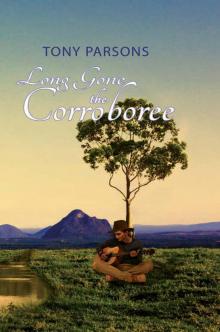 Long Gone the Corroboree
Long Gone the Corroboree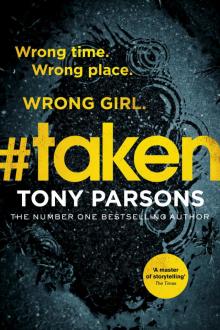 #taken
#taken The Family Way
The Family Way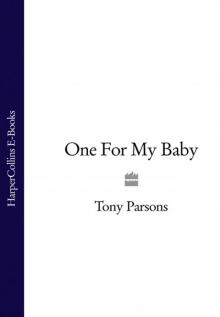 One For My Baby
One For My Baby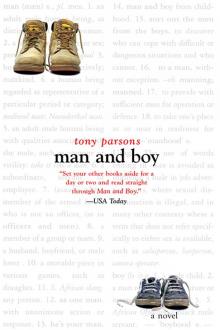 Man and Boy
Man and Boy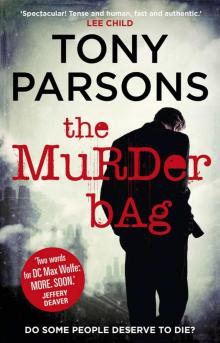 The Murder Bag
The Murder Bag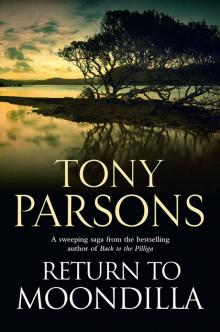 Return to Moondilla
Return to Moondilla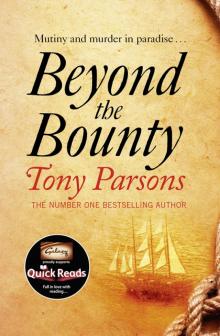 Beyond the Bounty
Beyond the Bounty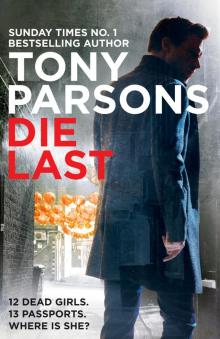 Die Last
Die Last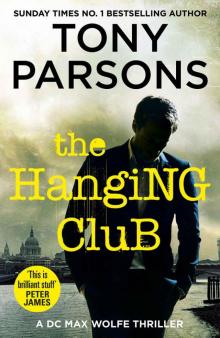 The Hanging Club (DC Max Wolfe)
The Hanging Club (DC Max Wolfe)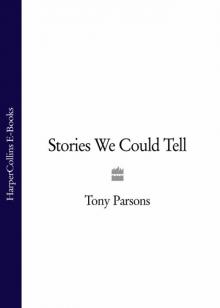 Stories We Could Tell
Stories We Could Tell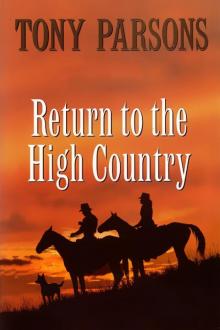 Return to the High Country
Return to the High Country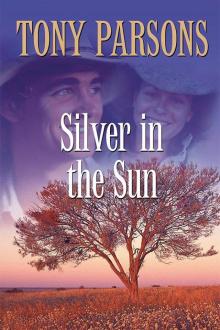 Silver in the Sun
Silver in the Sun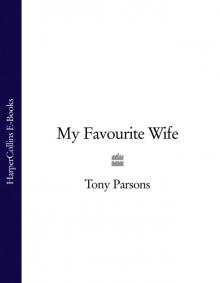 My Favourite Wife
My Favourite Wife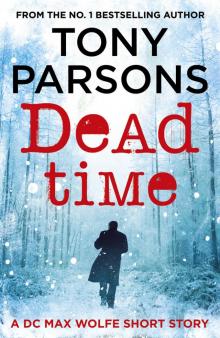 Dead Time
Dead Time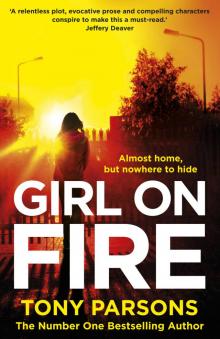 Girl On Fire
Girl On Fire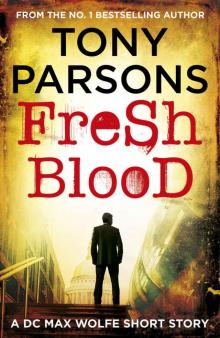 Max Wolfe 02.5 - Fresh Blood
Max Wolfe 02.5 - Fresh Blood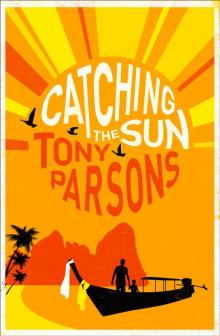 Catching the Sun
Catching the Sun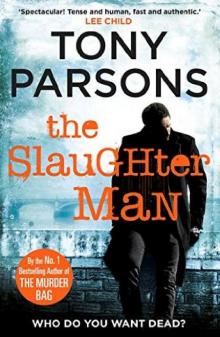 The Slaughter Man
The Slaughter Man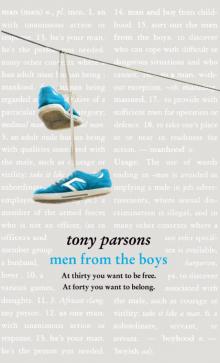 Men from the Boys
Men from the Boys Man and Wife
Man and Wife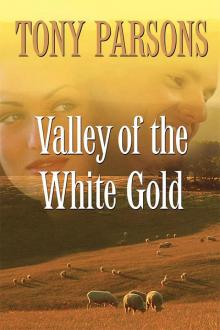 Valley of the White Gold
Valley of the White Gold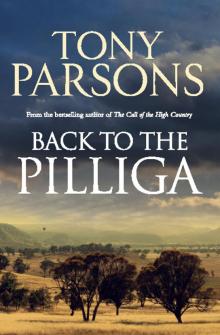 Back to the Pilliga
Back to the Pilliga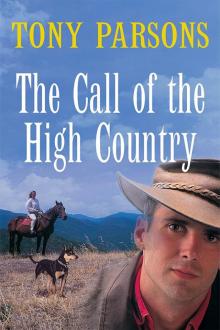 The Call of the High Country
The Call of the High Country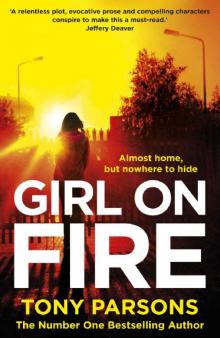 Girl On Fire_DC Max Wolfe
Girl On Fire_DC Max Wolfe